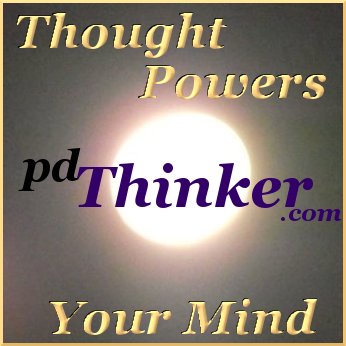Human Intelligence
Manifests Mass Communication
Part 17 - Part 16
Human Intelligence And The Phenomenon Of Induction
Human intelligence itself is a phenomenon. One individual's intellectual feat influences Intelligent Minds elsewhere without any form of Communication, in a manner corresponding to Electro-Magnetic Induction.
From the moment Michael Faraday established the Law of Inductance, Communicating with Electricity was entering Human Consciousness.
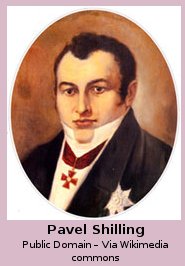
In what appears to be a logical step forward to apply the newly discovered Principles of Electricity to the benefit of Humankind, motivated Minds were investigating the concept of the Electro-Magnetic Telegraph.
But . . .
The History of the Telegraph plays out like a political thriller. It is difficult in the extreme to ascertain who deserves credit for what.
Assigning
credit in a just and deserving manner, appears to be a perennial
stumbling block in all matters relating to Human Advancement. From the
period of Homo Habilis, to our present day efforts to move forward.
It is this author's well considered opinion this unwise situation will prevail until Humanity per se grasps how Natural Reality operates and just how the Human Mind functions within that Reality.
When Humanity does finally arrive at that exalted intellectual destination of comprehending Reality, Peace and Prosperity will be an immanent element of Life.
Persistence Pays
Many earlier attempts at Telegraphy in one form or another failed. Reasons for failure were as varied as the attempts made. Most were impractical, could not attract funding, or ignored by authorities as unnecessary.
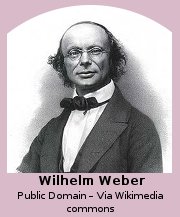
Nevertheless, following the dissemination of the discovery, and, more to the point, a rudimentary comprehension of, the Law of Inductance, several variations of Electric Telegraphic Apparatus appeared around the World, around the same time.
Baron Pavel Schilling, (1786-1837) a Russian Diplomat, built and demonstrated a version of Electro-magnetic Telegraphy during the early 1830s.
German born Scientists Friedrich Gauss (1777-1855) and Wilhelm Weber (1804-1891) built a working Electric Telegraph Line, within the grounds of Gottingen University. Also during the early 1830s.
Motives Vary
American born Physicist Joseph Henry, the man who independently discovered Induction, without receiving the same recognition as did Michael Faraday, proved his comprehension of Electricity by demonstrating how to maintain a Current over long distances. Henry did this by building an Electro-Magnetic device with which he transmitted an Electric Current over a mile of wire, to ring a bell at the far end.
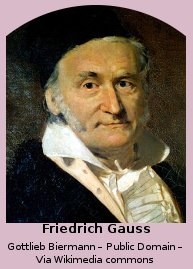
Joseph Henry's achievement was fundamental to the eventual successful long distance functioning of the Electric Telegraph.
Joseph also demonstrated the first Electro-Magnet capable of producing work.
Human
intelligence functions best when it is problem solving. Yet the Art of
problem solving, in a Scientific manner, is an almost unrecognized path
to contentment.
Which partially explains why . . .
As much
as Technology and Innovation may benefit our species, it should be
acknowledged that the overriding motivator for many marketers is the
Desire for wealth.
The drawback of this Attitude
is many inferior products see the light of day. Suffocating their
superior cousins that take much more effort to bring to fruition, but in
the long run would not merely be more effective, but importantly,
represent better value for money.
Kudos Goes To . . .
The mad scramble to market a product can take precedence over quality. Yet ironically the kudos often goes to the players who are the first to register with the Conscious Awareness of the consumer.
Occasionally, as was the situation with the Electric Telegraph, the kudos fades, and attention is paid to a superior contender.
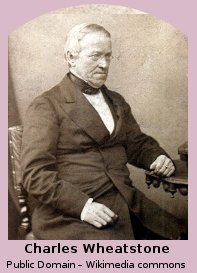
The first to commercialize this novel manner of communicating were two keen, enterprising Englishmen. Charles Wheatstone, (1802-1875) and William Cooke (1806-1879)
Physicist and Inventor, Wheatstone was awarded a knighthood for his generous contributions towards Physics.
Charles
was the Scientist who determined Electricity possessed Velocity and was
not instantaneous. The Velocity of Electricity varies and is dependent
on the Conductor and its Environment.
Wheatstone's Electric
Telegraph functioned on a system of five needles on separate circuits.
The needles were on a dial with the letters of the alphabet so arranged
that when the circuit was made, via a make or break switch, two of the
needles would be deflected to point at a letter of the alphabet.
Although
the complete alphabet was not represented, it was possible to decipher
complete words. Electrically, Wheatstone's system was not dissimilar to
the Code of Samuel Morse.
Horses For Courses
William Cooke, knighted like Wheatstone, was an Army Officer who possessed an inventive bent and had built his own version of an Electric Telegraph after a fortuitous exposure to a model of Pavel Schilling's device.
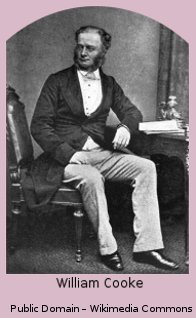
Forming a partnership, Wheatstone and Cooke were granted joint Patents on their respective offerings.
Cooke,
not withstanding his appreciation of the immensity of the influence
their invention would have on the World, was, by his own admission, only
in it for the money.
While Cooke made a modest contribution
technically to their undertaking his true expertise lay in Business
Administration. This Cooke consummately took care of. Paradoxically,
dealing with the administrative side of business was quite repugnant to
Wheatstone.
Shy Fellow
A naturally quiet fellow, and quite likely an introvert, Charles
Wheatstone immersed himself in the technical undertakings of their
partnership. He monopolized his Human intelligence by improving his
Telegraphy device and also developing other inventions.
Useful
inventions such as the Wheatstone Bridge, an instrument, which, during
this author's Telephony years, was found to be all but indispensable
when tracking down open circuits in underground Telephone line cables.
In
the meanwhile, thousands of miles away, Charles Wheatstone's greatest
competitor to be, Samuel Morse, was likewise immersed in Thinking
original Thoughts.
Magnanimous Human Intelligence Rocks!
Part 17 - Part 16
Next - Samuel Morse




